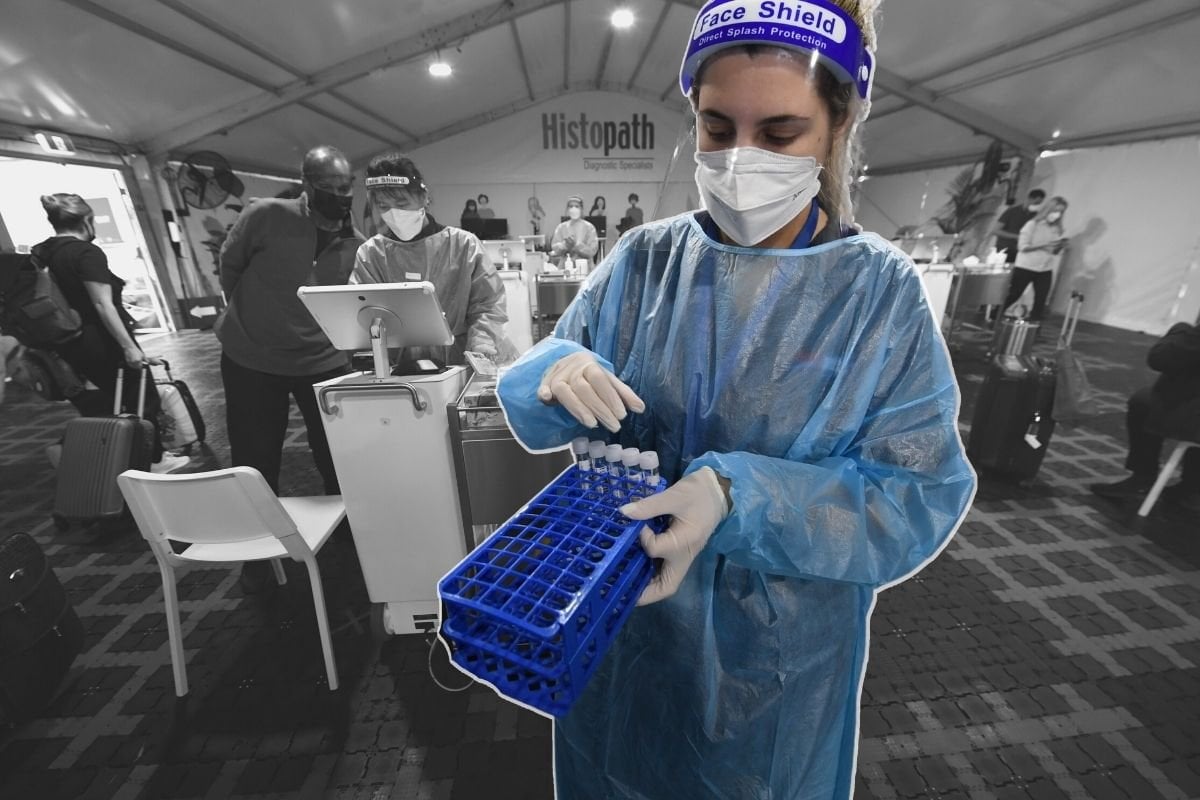
If you glanced at a TV or news website this weekend, you would have seen some terrifying headlines all featuring the word 'Omicron.'
That's the name of the new variant of COVID-19 that has popped up, prompting countries around the world — including ours — to enforce new travel restrictions.
Given COVID-19 has ruled our lives in the past two years, any mention of the word 'lockdown' or 'restriction' or 'new variant that might not respond to vaccines' is scary.
In response to Omicron concerns, any international arrivals into Victoria, ACT and NSW will now be required to self-isolate for at least 72 hours, regardless of vaccination status. https://t.co/DqnuAIwP60
— Mamamia (@Mamamia) November 28, 2021

Top Comments